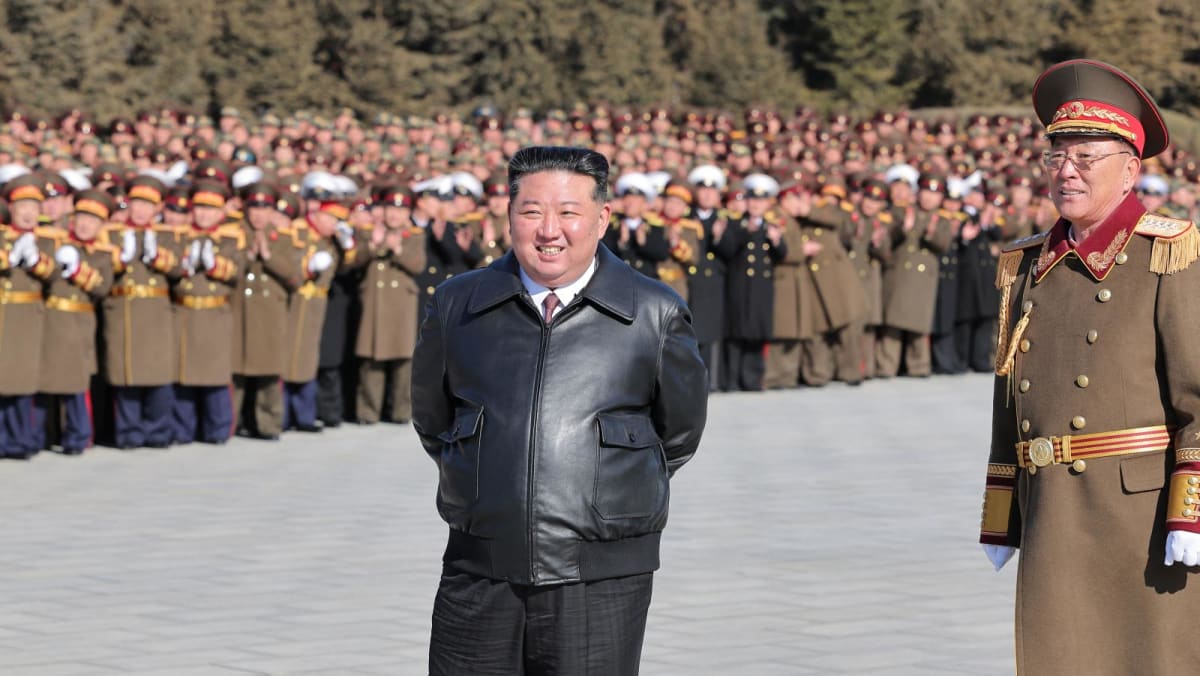Asia
North Korea says US should abandon military threats: State media

North Korea Calls for Reduced Tensions Amid Ongoing US-Korea Military Activities
A Call for De-escalation: North Korea Speaks Out
In a statement released on Saturday, February 15, North Korea called on the United States to halt its military threats, arguing that such actions undermine regional stability and provoke unnecessary tensions. The statement, carried by North Korea’s official news agency KCNA, was attributed to an unnamed official within the country’s defense ministry. This came in response to recent comments made by the head of US Northern Command, who highlighted the growing capability of North Korea’s intercontinental ballistic missiles (ICBMs) to reach the US mainland. North Korea framed its remarks as a call for peace, emphasizing its right to strengthen its self-defense capabilities in the face of what it perceives as aggressive posturing by the US and its allies.
North Korea’s Perspective: A Matter of Self-Defense
According to the KCNA report, North Korea argued that its efforts to bolster its military capabilities are legitimate and necessary to safeguard its sovereignty. The regime maintained that it is the US, not North Korea, that is escalating tensions in the region. The statement pointed to specific actions, such as joint military exercises with South Korea and the deployment of a nuclear submarine to the Korean Peninsula, as evidence of the US’s confrontational behavior. By highlighting these actions, North Korea sought to position itself as a victim of US aggression, asserting its right to improve its self-defense mechanisms in response to what it views as existential threats.
The Role of the US in Regional Tensions
The KCNA report also singled out recent remarks by the head of US Northern Command, which had raised concerns about North Korea’s missile capabilities. North Korea interpreted these comments as an acknowledgment of its military progress but also as a thinly veiled threat. The regime argued that such statements only serve to justify its own military buildup, creating a cycle of mistrust and hostility. By focusing on the US’s military activities in the region, North Korea aimed to shift the narrative away from its own actions and toward what it sees as the root cause of regional instability: US involvement and its alliance with South Korea.
A Cycle of Provocation and Response
North Korea’s statement reflects a long-standing pattern of reciprocal accusations between the two nations. The regime accused the US of engaging in "confrontational behavior," such as conducting large-scale joint military exercises with South Korea and deploying strategic assets like nuclear submarines to the region. These actions, North Korea argued, create an environment of hostility that justifies its own military modernization. By framing its actions as a response to US aggression, North Korea sought to portray itself as a responsible actor defending its sovereignty, rather than an aggressor seeking to destabilize the region.
A Call for Diplomacy and Mutual Understanding
While the statement was firm in its tone, it also carried an underlying message of diplomacy. North Korea implied that a reduction in US military activities and threats could pave the way for dialogue and cooperation. The regime reiterated its commitment to self-defense but also suggested that it would be open to de-escalation if the US were to abandon its confrontational stance. This dual approach—asserting its right to defend itself while calling for diplomacy—reflects North Korea’s complicated relationship with the US, marked by both mistrust and a desire for engagement.
Conclusion: The Path Forward
The statement from North Korea’s defense ministry underscores the challenges of achieving lasting peace and stability on the Korean Peninsula. While the regime’s military activities continue to draw international concern, its words highlight the intricate dynamics at play in the region. The US and North Korea remain locked in a cycle of provocation and response, with each side blaming the other for escalating tensions. To break this cycle, both nations will need to engage in meaningful dialogue and take concrete steps toward de-escalation. Until then, the region will remain a flashpoint for global concern.
-

 Tech1 day ago
Tech1 day agoCanon’s New Camera Is in a Category Once Thought Practically Dead
-

 Tech7 days ago
Tech7 days ago‘The White Lotus’ Season 3: Release Schedule and How to Watch
-

 Entertainment5 days ago
Entertainment5 days agoKhloe Kardashian Says Mom Kris Jenner ‘Gets Mad at Me’ for Wearing ‘Baggy Sweats’ Out of the House
-

 Money6 days ago
Money6 days agoCal Newport’s Productivity Hack That Can Also Help You Escape Financial Burnout
-

 Tech6 days ago
Tech6 days agoBest Internet Providers in Cincinnati, Ohio
-

 Sports2 days ago
Sports2 days agoChargers to play 2025 regular season opener in Brazil
-

 Tech5 days ago
Tech5 days agoBest AirPods Max Accessories for 2025
-

 World6 days ago
World6 days agoHow to Watch USA vs. Cuba: Live Stream 2025 Concacaf U-17 Men’s Qualifiers, TV Channel










